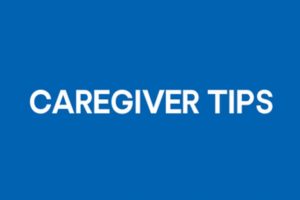Observation Status vs. Hospital Admittance

What’s worse for a senior than getting hospitalized and then having to go for rehab? Learning that Medicare won’t cover your rehab because of a technicality.
Observation Status vs. Hospital Admittance
Fact: Medicare doesn’t cover rehab stays in skilled nursing facilities unless the patient was first admitted to the hospital and spent at least three days inpatient.
However, more ER doctors are categorizing seniors for observation, not admittance. Seniors under observation not only pay more out-of-pocket for hospitalizations (it’s covered under Medicare Part B, not the more generous Part A), but are ineligible for Medicare’s rehab benefit.
“What’s driving this? Money. These days, hospitals are using observation status to avoid Medicare penalties that are incurred when patients are readmitted within 30 days.”
In some cases, Medicare considers readmission evidence that the hospital discharged a patient prematurely and can withhold reimbursement for the initial hospitalization.
But there’s no penalty for observation stays. Which is why, according to one Kaiser Health study, the number of patients on observation has increased 69 percent within just five years.
Observation patients sleep in the exact same bed that they would if they were admitted. They receive the exact same care.
Which is why until a new regulation was passed this year, many patients had no idea.
Dark Side of the MOON: Until March 2017, unless a patient or family member knew to ask what the patient’s status was, they were often left in the dark … until they started receiving hospital bills or were denied Medicare coverage for a rehab stay.
That’s why the Centers for Medicare and Medicaid Services enacted a new regulation earlier this year, requiring hospitals to provide patients under observation for more than 24 hours with written and oral notice.
This Medicare Outpatient Observation Notice, aka MOON, notifies patients that they are receiving observation services, not inpatient. Patients don’t have the option of appealing their MOON. But that doesn’t mean they can’t take action.
Don’t Hesitate — Advocate: Every senior and family member needs to understand what’s at stake when they’re under observation, so they can take steps to minimize expensive financial surprises.
You don’t need to wait until you’re served with a MOON to ask what your hospital status is. If you believe your particular medical condition warrants admission, you can ask your hospital doctor to change your status.
However, because your argument must be based on valid medical considerations, you might be better served to ask your regular doctor to intercede or hire a private patient advocate to make your case for you.
The bottom line is, knowledge is power. Even when you’re flat on your back in a hospital bed, you don’t need to take this lying down.
Written by Teri Dreber.
Teri Dreher, RN, CCRN and iRNPA, is an author and award-winning RN patient advocate. A critical care nurse for more than 30 years, today she is owner/founder of Libertyville-based NShore Patient Advocates, www.northshorern.com, the largest advocacy firm in the area. A pioneer in the growing field of private patient advocacy, she recently published her first book, “Patient Advocacy Matters.”











